The Doughgirls

Brief Synopsis
Cast & Crew
James V. Kern
Ann Sheridan
Alexis Smith
Jack Carson
Jane Wyman
Irene Manning
Film Details
Technical Specs

Synopsis
After eloping to Pottsville, Maryland, Arthur Halstead, his new wife Vivian and her dog Duke arrive in Washington, D.C, where Arthur is aide to Stanley Slade, Administrator of Inter-Bureau Co-ordination. Housing is scarce in wartime Washington, and their hotel rooms are still occupied by Julian and Edna Cadman, another newly married couple. When Edna, who is furious at being turned out of the suite, discovers that Vivian is an old friend from her days as a showgirl, she cheerfully demands that the two couples share the rooms. When Nan Dillon, a third newlywed showgirl chum, knocks on the door, having seen Duke in the lobby, Edna insists that Nan and her husband Tom, move in as well, despite Vivian's protests. While the women are making their arrangements, Elizabeth Brush Cartwright, commander of the War Wives Relief Corps, calls to sign them up as volunteers and informs them that they will be allowed to work after they are investigated by the FBI. After Elizabeth leaves, Nan fears that she will not pass the investigation because Tom was sent to the hospital with measles before they could actually be married. A few minutes later, Julian's ex-wife, Sylvia Cadmen, arrives and informs Edna that Julian's divorce is not yet final, meaning that Edna and Julian are not legally married. To make matters worse, Sylvia now wants Julian back, because war shortages have created a demand for his process to convert soybeans to other products. Finally, Vivian learns from a radio broadcast that the man who married them in Pottsville was actually a burglar, posing as a justice of the peace. She, too, is not legally married. Then Julian arrives, to general consternation, with Natasha Moskoroff, a veteran Russian Nazi fighter, who announces that she likes the communal atmosphere in their suite better than the consulate, and will sleep there. When Arthur learns that his marriage is not legal, he refuses either to marry Vivian or pay the hotel bill until everyone else has left the suite. Several days later, when the hotel threatens to kick them out if the bill is not paid within an hour, Natasha pawns Vivian's jeweled clips, angering Arthur, who had given them to her as a gift. While Natasha is gone, Tom and Nan attempt to get married, but Vivian has used their marriage license as a laundry list, and the judge refuses to marry them without it, even though Tom, a soldier, is being sent overseas the next day. In the meantime, the hotel manager has rented the suite to radio newscaster, Breckinridge Drake, who generously agrees to share the suite with the women. A month later, Vivian, who has gone to work as a secretary to Slade, is surprised when Slade proposes to her. He gives her a ring, which infuriates Arthur when he sees it. To prove to Arthur that she really loves him, Vivian decides to pawn the ring and redeem the clips. Then Julian learns that Buckley, his boss, has fallen in love with Sylvia and convinced her to let the divorce become final. Having completed their investigation, the FBI demands that the women leave town, but before they can enforce this, Nan is invited to have lunch at the White House, where Tom is to be decorated. Determined to be married before lunch, Tom returns with the judge. Meanwhile, Arthur, seeing the redeemed clips, agrees to marry Vivian, and a triple wedding follows.

Director
James V. Kern
Cast
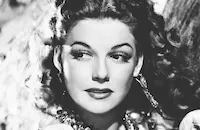
Ann Sheridan

Alexis Smith

Jack Carson
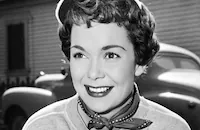
Jane Wyman

Irene Manning
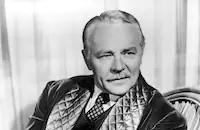
Charles Ruggles
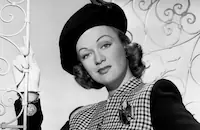
Eve Arden

John Ridgely
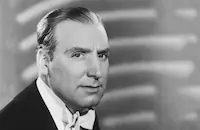
Alan Mowbray

John Alexander

Craig Stevens
Barbara Brown
Francis Pierlot

Donald Macbride

Regis Toomey

Stephen Richards
Joe De Rita
Walter De Palma
John Walsh
Grandon Rhodes
Tom Quinn
Fred Kelsey
Dink Trout
Glen Walters

John Hamilton
Almira Sessions
Minerva Urecal
Earl Dewey
Harry Tyler
Charles Sullivan
Oliver Prickett
Joan Winfield
Elmer Jerome
Ralph Sanford
Ferike Boros
Bill Kennedy

Jack Mower
John O'connor
Paul Brooks
Larry Rio
Carlyle Blackwell Jr.
William Forrest
Nick Kobliansky
Will Fowler
Dolores Conlin
Dorothy Reisner
Helen Gerald
Joan Breslaw
Yolanda Baiano
Julie Arlington
Marie De Becker
Anita Bolster
Audley Anderson
Robert Dudley
Warren Mills
Dick Hirbe
William Frambes
Janet Barrett
Mary Landa
Dorothy Schoemer
Lucille Lamarr
Jackie Davis
Lou Marcelle
Cedric Stevens
Raoul Freeman
Maurice Costello
Jack Del Rio
Fred Carpenter
George Suzanne
Buck Harrington
Bennett Green
Vladimir Baikoff
Nick Vehr
Tiny Jones
Crew
Milo Anderson
Folmer Blangsted
Leo F. Forbstein
Jack Gage
Ernest Haller
Mark Hellinger
Sam Hellman
Stanley Jones
James V. Kern
Nicholas Kobliansky
James Leicester
Wilkie Mahoney
William Mcgann
Hugh Reticker
Clarence Steensen
Jack L. Warner
Perc Westmore

Videos
Movie Clip



Trailer
Film Details
Technical Specs

Articles
The Doughgirls
The real scene-stealer, though, is Eve Arden as a Russian guerrilla fighter who keeps up her sniper skills by shooting pigeons from the hotel balcony and rescues the other girls from their romantic comedy entanglements.
Arden and Wyman garnered the best reviews at the time of the film's release, despite the top billings of Sheridan and Smith. The New York Times wrote that Wyman "played a priceless nitwit who is a great admirer of President Roosevelt's because of his fine acting ability in `Yankee Doodle Dandy.'" Many newspaper reviews, in fact, included a photo of rising star Wyman rather than her established co-stars.
But Wyman almost didn't make The Doughgirls. After her turn in Make Your Own Bed (1944), also starring Jack Carson, Warner Bros. pressured Wyman into taking a supporting role in The Doughgirls with fourth billing. Wyman almost balked and risked suspension, but close friend Sheridan talked her into joining the cast and Wyman called the filming "a romp, an absolute romp." At the time, Wyman and husband Ronald Reagan's marriage was beginning to show cracks as the couple began to diverge in their interests. They would divorce in 1948. While on a publicity tour for The Doughgirls in New York with her co-stars, director Billy Wilder contacted Wyman about the girlfriend role in The Lost Weekend (1945), and her career got another boost.
Arden landed the fortuitous role by a different route. In her autobiography Three Phases of Eve, Arden remembers, "while hanging around the studio lot as a bit player, I noticed a striking Russian military uniform walking around, each day with a different female body in it. Curious, I inquired and found that they were testing for the part of the Russian guerrilla in the film...I thought the Russian part might be fun to do...My love of dialects and the off-beat character resulted in a [screen] test the crew found hilarious. Evidently, so did Jack Warner, because the afternoon he screened it, my agent was summoned immediately to discuss a contract. So I joined Annie, Jane Wyman, and Alexis Smith in what was a romp to make, but due to the first effort of an inexperienced director, it didn't make much "dough" for Warner Bros., and I regretted that they hadn't released my test instead! It did, however, get me the only kind of contract I wanted to sign: two pictures a year, an option for a third, and the right to do Broadway shows and radio."
Statuesque beauty Alexis Smith, who had a string of roles opposite such famous leading men as Errol Flynn and Cary Grant in the 1940s and beyond, never achieved super-stardom herself but said she had few illusions about her career. Decades after her hey-day, she recalled in an interview, "In those days, I was fresh out of school and delighted to be a movie star...I was pretty much a utility girl at Warners. Anything Ann Sheridan or Ida Lupino or Jane Wyman didn't want to do, I sort of fell heir to. You know, people frequently feel it was a shame that Warners typecast me, but I don't believe that. I believe I typecast myself."
While filming The Doughgirls, Smith married Craig Stevens, who also appeared in the film after a medical discharge from the Army. It would be the last movie they made together, but they remained married for 49 years until Stevens' death.
Based on the Broadway hit of the same name, the film version of The Doughgirls had to water down some of the saucy situations and double-entendre dialogue because of the Hays Code. Critics also faulted first time director James V. Kern, who also co-wrote the script. (He would only make a few films before directing episodes of TV shows such as I Love Lucy and My Three Sons.) Despite some of the shortcomings, the cast seems to be having fun in what Variety described a "laugh marathon, and marquee-loaded."
Producer: Mark Hellinger
Director: James V. Kern
Screenplay: Joseph Fields (play), Sam Hellman, James V. Kern, Wilkie C. Mahoney
Cinematography: Ernest Haller
Film Editing: Folmer Blangsted
Art Direction: Hugh Reticker
Music: Adolph Deutsch
Cast: Ann Sheridan (Edna Stokes), Alexis Smith (Nan Curtiss), Jack Carson (Arthur Halstead), Jane Wyman (Vivian Marsden), Irene Manning (Sylvia Cadman), Charles Ruggles (Stanley Slade), Eve Arden (Natalia Moskoroff), Craig Stevens (Tom Dillon).
BW-102m. by Amy Cox

The Doughgirls
Quotes
Trivia
Notes
Actors Craig Stevens and Alexis Smith, who played the roles of "Nan" and "Tom Dillon," married shortly after the film was completed. This was the last film appearance of noted Broadway and silent film star Maurice Costello.















